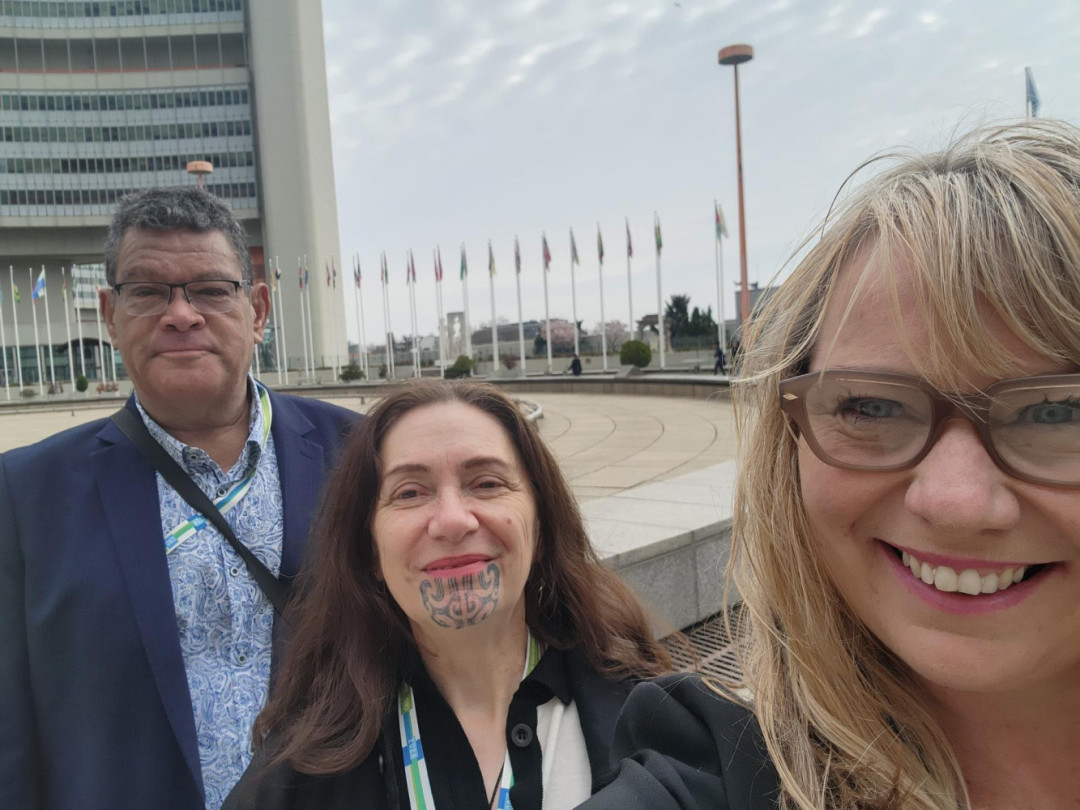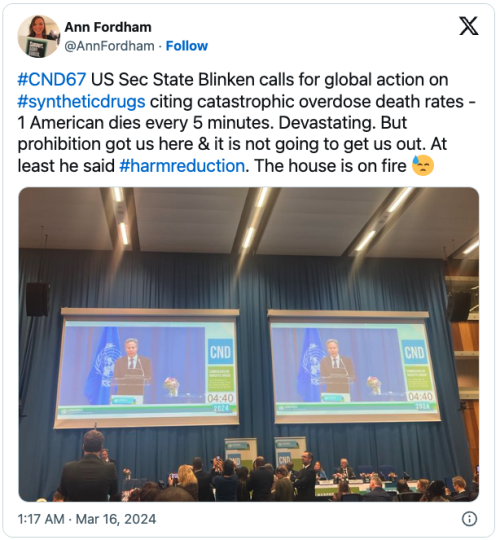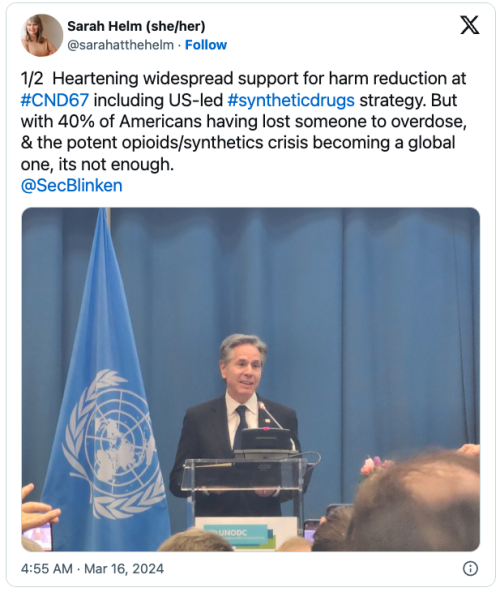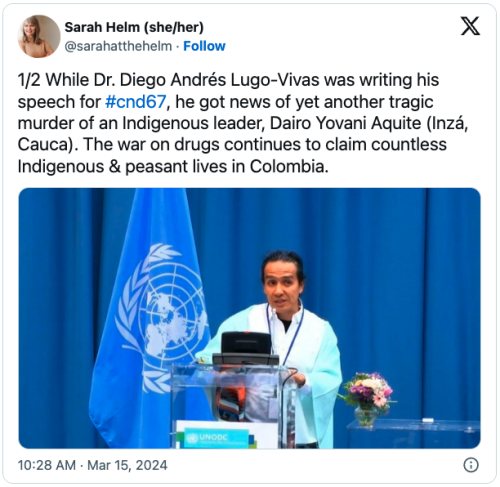Reflections from the 2024 UN Commission on Narcotic Drugs

The Foundation's Executive Director Sarah Helm reflects on the highlights from this year's UN Commission on Narcotic Drugs hui.
I recently returned home from a trip to the United Nations’ big annual drug-focussed event, the Commission on Narcotic Drugs (CND). It’s a conference-style event in Vienna run by the UN’s drug arm, the UNODC, where states pass resolutions, make statements, and set and monitor the UNODC work programme. There are also lots of workshop-style side events where information and approaches are shared.
The NZ Drug Foundation Te Puna Whakaiti Pāmamae Kai Whakapiri has special status to enable us to participate in the event, and this year was a special session assessing progress against their 10 year goals. The debate has shifted significantly in my few years of attendance at CND. This year was the first time harm reduction was mentioned in a successful resolution. This is significant. The resolution – about overdose prevention – was led by the United States, which has seen unprecedented overdose fatalities.
The US continues to wield extraordinary influence in this forum, illustrated clearly by the arrival of Secretary of State Anthony Blinken to the event, which caused a Beatles-like flurry of movement.
The US has been leading a multi-lateral synthetics strategy, which endorses overdose prevention and harm reduction and even encourages other countries to commit to action on these. Sadly, alongside this, the strategy continues to pursue the same supply control and enforcement approach that has gotten us into the position we find ourselves in today – of increasingly potent and new psychoactive substances.
New Zealand is an active participant in this strategy, and so probably one of the most significant moments for us was an announcement that New Zealand is committing to the creation of an overdose preparedness plan.
Another standout moment from the CND was the blunt rejection of the war on drugs approach from countries that have had a huge loss of life and the colonisation of species precious to Indigenous Peoples, like Colombia and Bolivia, with Colombia coordinating a strong statement of 62 countries calling for the reform of the international drug control system, which has remained unchanged since the height of the “war on drugs”.
Many of you will enjoy the intervention (statement) made by the President of Colombia, who sent a message to leaders on the failure of the war on drugs:
Lastly, I want to focus on the incredible participation and leadership of Indigenous Peoples at CND this year. This was in part thanks to Bolivia’s strong representation for Indigenous People’s access to coca. Together with Colombia they are seeking the descheduling of coca, which has a myriad of health benefits and has been traditionally used by Indigenous Peoples in their countries.
But it was the persistent combined efforts of the founding members of the International Indigenous Drug Policy Alliance (IIDPA) – Aboriginal Drug & Alcohol Council, Thunderbird Partnership Foundation, Te Rau Ora, and the NZ Drug Foundation, with the support of the Open Society Foundation – that meant we probably had the strongest ever presence of Indigenous Peoples at a CND so far. The delegation was made up of people from Aotearoa, Australia, Colombia and the USA (though the US’s Sam Rivera couldn’t make it in the end). We were also joined by Dr Esther Tailfeathers from the Blood Reserve (Kainai First Nation).
The group were able to make a number of presentations, including a speech during the ‘high level’ plenary from Dr Diego Andrés Lugo-Vivas.
Māori researcher Jenna-Rose Astwood, who is part of the Tū Wairua project presented on Indigenous psychedelic mushrooms in the context of protecting native species from appropriation. The theft and suppression of plant species used by Indigenous Peoples was a recurring theme throughout CND.
Our main IIDPA side event was focussed on Indigenous-led drug policy that works for Indigenous Peoples. Dr Tailfeathers shared a powerful and instructive story about the Blood Nations response to opioid overdose in their community, and a whole community embracing of harm reduction and an community-led continuum of care.
Recent news
What can we learn from Australia’s free naloxone scheme?
As harm reduction advocates in Aotearoa push for better naloxone access, we look for lessons across the ditch.

A new approach to reporting on drug data
We've launched a new tool to help you find the latest drug data and changed how we report throughout the year.

Drug Foundation celebrates significant growth of drug checking service
Significant growth in drug checking availability and uptake is helping to prevent harm in more parts of the community.




